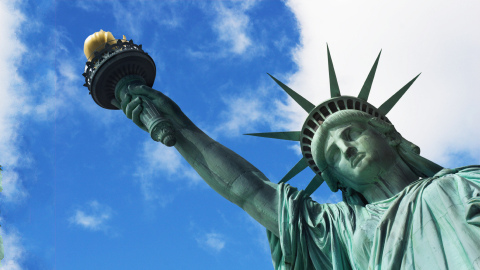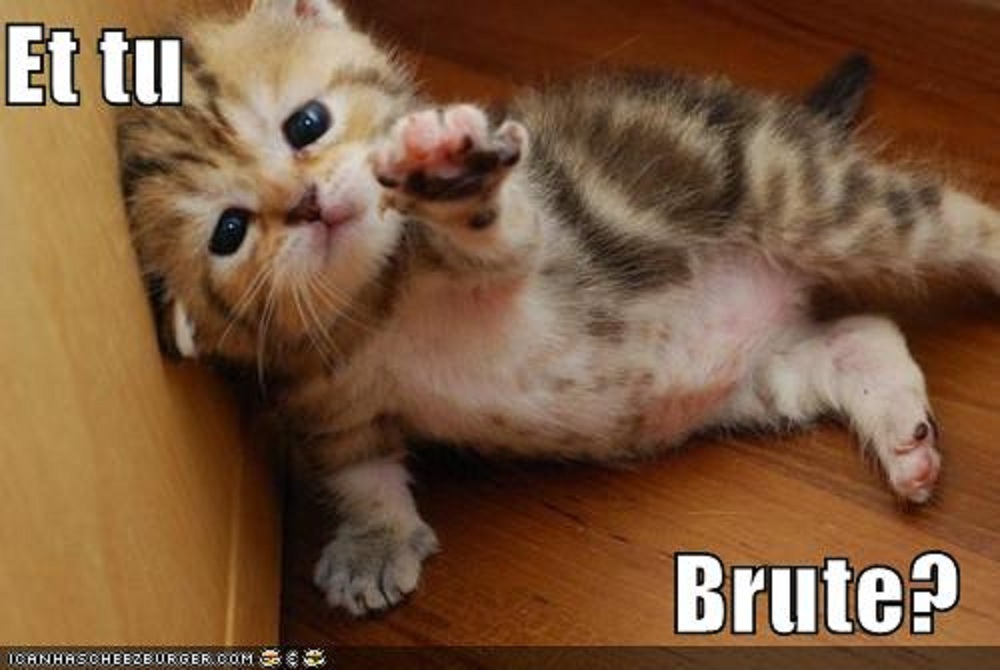When the United States was founded, the concept of monopolies on ideas was carried to the New World and debated intensely. Thomas Jefferson was a fierce opponent to the monster of monopolies on ideas. A compromise was reached.
Copyright didn’t originate in the United States, as we have seen. The idea had been there beforehand and the Founding Fathers carried the laws with them into their new country. The topic of monopolies on ideas, however, was a topic not easily settled. Jefferson wrote:
If nature has made any one thing less susceptible than all others of exclusive property, it is the action of the thinking power called an idea, which an individual may exclusively possess as long as he keeps it to himself; but the moment it is divulged, it forces itself into the possession of every one, and the receiver cannot dispossess himself of it. Its peculiar character, too, is that no one possesses the less, because every other possesses the whole of it. He who receives an idea from me, receives instruction himself without lessening mine; as he who lights his taper at mine, receives light without darkening me. That ideas should freely spread from one to another over the globe, for the moral and mutual instruction of man, and improvement of his condition, seems to have been peculiarly and benevolently designed by nature, when she made them … incapable of confinement or exclusive appropriation.
In the end, the United States Constitution was the first one to specify the reason for copyrights (and patents!) to be granted. It is very clear and straigtforward in its justification for the existence of copyright in United States law:
…to promote the progress of the sciences and useful arts…
It is particularly notable that the purpose of the monopoly was not for any profession to make money, neither writer nor printer nor distributor. Instead, the purpose is exemplary in its clarity: the only justification for the monopoly is if it maximizes the culture and knowledge available to society.
Thus, copyright (in the US, and therefore predominantly today) is a balance between the public’s access to culture and the same public’s interest of having new culture created. This is tremendously important. In particular, note here that the public is the only legitimate stakeholder in the wording and evolution of copyright law: the monopoly holders, while certainly being benefactors of the monopoly, are not legitimate stakeholders and should have no say in its wording, just like a regiment town should have no say in whether that regiment is actually needed for national security.
It is useful to point at the wording of the US Constitution when people falsely believe that the copyright monopoly exists so that artists can make money. It never did, not in any country.
Meanwhile in the United Kingdom
In the meantime in the United Kingdom, books were still quite expensive, mostly because of the copyright monopoly. Book collections were only seen in rich men’s homes, and some started benevolently to lend books to the common people.
The publishers went mad about this, and lobbied Parliament to outlaw the reading of a book without first paying for their own copy. They tried to outlaw the public library before the library had even been invented. “Reading without paying first? That’s stealing from the authors! Taking the bread right out of their childrens’ mouths!”
But Parliament took a different stance, seeing the positive impact of reading on society. The problem perceived by Parliament was not the self-described eternal plight of the copyright monopolists, but the problem that rich men in society dictated who would read and who wouldn’t. It seemed beneficial to society to level the playing field: to create public libraries, accessible to poor and rich alike.
The copyright monopolists went absolutely ballistic when they heard about this idea. “You can’t let anybody read any book for free! Not a single book will be sold ever again! Nobody will be able to live off their writing! No author will write a single book ever again if you pass this law!”
Parliament in the 1800s was much wiser than today, however, and saw the copyright monopolists’ tantrum for what it was. Parliament took a strong stance that public access to knowledge and culture had a larger benefit to society than the copyright monopoly, and so in 1849, the law instituting public libraries in the UK was passed. The first public library opened in 1850.
And as we know, not a single book has been written ever since. Either that, or the copyright monopolists’ rant about nothing being created without a strong monopoly was as false then as it is when repeated today.
(Note: in some European countries, authors and translators get some pennies for every book lent from a library. It should be strongly noted that this is not a compensation for an imaginary loss of income, as if every reduction in the monopoly required compensation, but a national cultural grant which happens to measure popularity and therefore suitability for that grant using statistics from libraries. Besides, the grant appeared in the early 1900s, long after libraries.)
Meanwhile in Germany
Germany had no copyright monopoly during this time. Several historians argue that this led to the rapid proliferation of knowledge that enabled Germany to take the industrial lead over the United Kingdom — knowledge could be spread cheaply and efficiently. So in a way, Germany’s leapfrogging of the United Kingdom proved British Parliament right: the national interest of access to culture and knowledge does supersede the monopoly interest of the publishers.
Next: Moral Rights on the Continent.
Previously: The Monopoly Dies – And Rises.
Sources: I will need sourcing for several of the facts here that I have collected over my five years as party leader but don’t recall from where. I’ll come back with a summary of what I need pointers to last in this series. Specifically, I’m lacking sources for the quotes from the UK library debate here.






[…] This post was mentioned on Twitter by lillebrorsan, Razor. Razor said: Falkvinge: History of Copyright, part 4: The US and Libraries http://bit.ly/ejKGZ5 […]
Distraherande typo:
“Copyright didn’t origin in the United States”
originate
Thanks. While I think that any noun can be verbed, in this case origin, if it’s distracting it’s bad for the message of the article. Changed.
It’s true that “any noun can be verbed”, but only for new words. For example, you can “mail a friend” where the noun “mail” became the verb in the act of “mailing” when e-mail was introduced. However, you can’t apply this across the board for any type of English. It is most certainly incorrect to say “Copyright didn’t origin in” as origin is never used as a verb, and it is never used as a verb for the simple fact that there is already a verb with the same function: (to) originate.
Hackers and nerds, on the other hand, have a culture of spending large attentivity to language rules and, coupled with a great deal of createhood, overutilizationship of language rules result and such words abound in nerd text and culture.
See Jargon File, Overgeneralizinessitude for more examples.
Great text! Gives a very good explanation of the purpose of copyright – something that not many people seem to know about.
Should also point out that the “art” in “useful arts” probably doesn’t mean what people think it does today. “Art” is a contraction of artificial, and refers to man-made objects. “Useful arts”, in the context of the 1770’s US probably means tools, not entertainment.
You’re quite right. “Sciences” referred to knowledge (copyright) and “useful arts” to handicraft (patents).
♥ History of Copyright, part 4: The US and Libraries http://bit.ly/ge72we
[…] Part 4: The US and Libraries […]
[…] much wiser than today, however, and saw the copyright monopolists’ tantrum for what it was. They decided that the public’s access to knowledge and culture had a greater value to society than a […]
[…] Next: Reading Books Without Paying? That’s Stealing! […]
[…] to the copyright conflict: creators, publishers, and the public. Ironically, the public is the only legitimate stakeholder in the monopoly’s […]
[…] 4 of a 7 part series on ‘The History of Copyright’ (difficult to understand. you may have to start from part 1 if it doesn’t make […]
[…] Germany didn’t have copyright monopoly laws at this point in time, and historians argue that was the direct cause of Germany’s engineering excellence overtaking that of the United […]
[…] History of copyright, part 4: the US and libraries (en español) […]
[…] History of copyright, part 4: the US and libraries (en español) […]
[…] (No obstante, ya las editoriales intentaron una vez prohibir por ley los préstamos de libros, argumentando que el que la gente se preste libros era robarle al autor, y que todo el mundo debería tener que […]
[…] works. (Nevertheless, publishers once demanded lending of books between people to be banned by law, arguing that lending books between people was stealing from the author, and that everybody must buy their […]
Hi, i feel that i saw you visited my website so i came to return the desire?.I’m trying to
to find things to enhance my web site!I suppose its adequate to use
some of your ideas!!